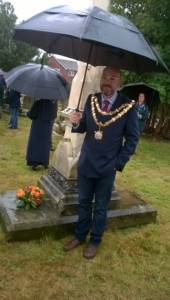
At the Full Town Council meeting of 10th March 2016 Councillors considered a report by Council Leader Brian Smedley which fully investigated the role of Town Mayor by interviewing former Mayors and making recommendations which clarified the roles and responsibilities of the office.
WHAT DOES IT MEAN TO BE THE MAYOR OF BRIDGWATER TODAY?
Modern role of Town Mayor: The Mayor’s primary role is ceremonial as the town’s First Citizen with the purpose of promoting the town, leading any ceremonial functions and chairing town council meetings throughout their year of office. When a Mayor accepts the role the first thing they would be advised to do is to clear their diary for the year ahead and put their life on hold. This can be particularly challenging for someone who tries to combine this with a full time job.
Recommendation: That an incoming Mayor accepts the following Job Spec for their year in office. The Mayor should be a sociable person who is able to promote the town as its ambassador and who is available for a number of functions (averaging between130-250 per year). The Mayor has to be someone who can dedicate and commit to a year of their life in the job following a year’s apprenticeship as deputy. This can be difficult for someone working full time but some employers will be supportive, allowing time off for civic engagements.
HOW DO YOU BECOME A MAYOR
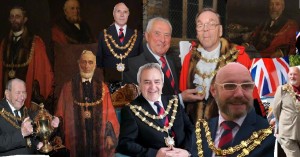
Election: Any one of the 16 elected Town Councillors can put themselves forward or be put forward as candidate for Mayor. The Mayor is elected at annual council by majority vote of Town Council members. In effect this means the Mayor is chosen by the ruling group who would normally plan ahead of this meeting so that the incoming Mayor is prepared for the role. This is scheduled for March. They would also elect a deputy at the same time with a commitment to serving the following year.
Whilst at one time there had been a protocol that a Mayor should serve a full 4 year term as a Councillor to gain experience before they could be considered as a Mayor this was relaxed and is now not enforced. It should be stipulated, however, that the Mayor must be deemed capable of doing the job in hand, articulating the role clearly and must be deemed to be sufficiently experienced in the workings of the Town Council and fully acquainted with the town.
Recommendation: It is proposed that a Councillor should only be considered for the post of Mayor after first serving a minimum of 2 years on the Town Council.
WHAT DOES A MAYOR COST
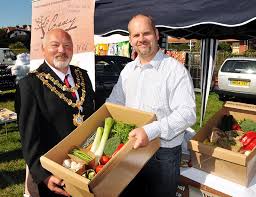
Finances: The Mayor is currently granted an allowance of £7,800 (2015-16). This is for them to use as they see fit to finance their term of office. It is allocated as 50% at start and the rest in 10 monthly cheques (£390 pm). This figure comprises the Mayor’s entire budget for the year. Often Mayors have chosen to add additional finances from their own pockets but whilst certain ‘expectations’ and ‘traditions’ have been built up over the years, none of these are compulsory.
Recommendation: The current rate of allowance is deemed adequate for the job in hand. However, this ‘job’ should be clearly defined with a minimum standard of traditions and expectations for which a Mayor should sign up to upon standing for office.
Gifts: There is currently no defining rule regarding a Mayor’s requirement to present gifts to visitors, foreign dignitaries or guests of any kind – this is currently at the discretion of the Mayor and funded via their allowance or from a BTC stock.
Recommendation:
(i) The stock of Town Council promotional materials should be enhanced and made available within the approved BTC promotional budget (Civic Gifts -currently £300). These to include ties, scarves, pin badges and pens which a Mayor can resource in order to promote the town. Promotional expenditure desired by an individual Mayor over and above this should come out of the Mayor’s allowance.
(ii)There should be a record kept of gifts received and proffered to avoid duplication and maintain consistency.
(iii) Any gifts received above the value of £25 should be declared to the Town Clerk.
THE TRAPPINGS OF THE MAYORALTY
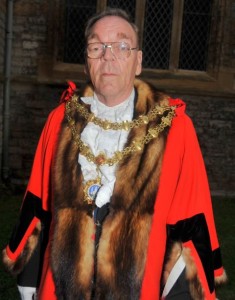
Chain: Chains or livery collars originate from the feudal system as a sign of place within the system. During the 15th century renaissance collars were replaced with gold and began to symbolise status and wealth of a community. These became adopted as Chains of Office by Mayors at this time. In many countries which moved from monarchies to republics, chains were replaced by presidential sashes in national colours. In Bridgwater a very valuable chain of office is worn on key civic occasions and kept in a safe location. The Mayor and Town Clerk have access.
Recommendation: The Mayor should seek to wear the chain at every opportunity where it involves promotion of the town ‘as and when the Mayor feels it appropriate’ or when responding to an appropriate request from the community.
Robes: There are 7 red robes of different sizes available. The Mayor, upon attaining office picks one and the rest are stored in the Mayor’s Parlour for use by ‘former Mayors’ for special occasions – usually just ‘Remembrance Day’. There are also 2 hats (1 is a mourning hat) and 4 sets of gloves. There is in addition a black robe which is a ‘solemn ceremonial robe’ and was worn just once by Mayor Monteith at the 2010 Remembrance service.
Recommendation:
(i) A Mayor is expected to wear full robes at Mayor Making, Civic Service and Remembrance Day or otherwise by arrangement or request.
(ii) The Mayor’s robes are adorned with ermine fur. Some authorities provide artificial fur as an alternative as a result in public concern over animal rights. However, a Mayor can choose not to wear the fur if it is a moral issue for them.
(iii) Some Mayors have made the robes available for visitors to ‘try on’ which has proved to be very popular with foreign students in particular. This practice should be encouraged as it demystifies the pageantry.
(iv) Part of the role of the Mayor’s Secretary should be to keep an up to date inventory of the accoutrements of the Mayoralty in a ‘schedule of assets’ and ensure they are appropriately maintained, cleaned and available.
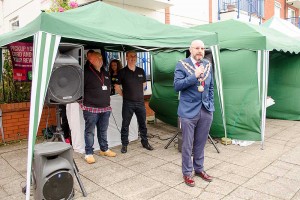
Attire: There are no rules as to what a Mayor should wear whilst performing their duties. However, the majority of Mayors have chosen to wear a suit and a Bridgwater Town tie.
Recommendation: The assumption is that a Mayor should be as smart and presentable as possible but how this is interpreted should be totally at the discretion of the individual Mayor.
Maces: There are three Town Maces. The historic role of the mace symbolises the authority of the office of the Mayor and derives from the medieval weapons which were genuinely used to physically protect the Mayor as they collected taxes (the sleeves of the Mayors robe in fact are pockets for this purpose). A mace is traditionally the symbol to ‘lay down arms and discuss issues peacefully’ and so often a mace is positioned in a prominent place in the council chamber.
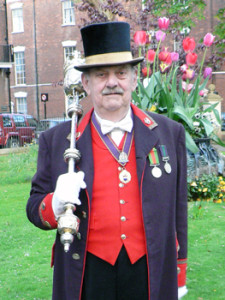
During the English Republic of the 1650s Oliver Cromwell referred to the mace as ‘a fool’s bauble’ and had it removed from Parliament. However by 1660 maces were back in fashion as a symbol of grovelling loyalty to the restored Crown. At this time the Bridgwater Mace had a hastily attached crown put on. All Bridgwater maces date from this period (the Commonwealth 1650-1660) The largest mace is the Warwick Mace –replete with the Stuart symbols of acorns and oak leafs. In Bridgwater today the mace is brought out only at Mayor Making or on any occasion where the Mayor is required to process.
Macebearer: also known as ‘Mayor’s Marshal’, ‘Sergeant at Arms’ or apparently more accurately ‘Sergeant at Mace’ and historically the Mayor’s bodyguard. Today our ‘Macebearer’ is Chris Hocking. The function of the Macebearer is simply to add to the pageant on occasion as required.
Recommendation: There is no budget for a Macebearer and use of a Macebearer should remain simply as an option to add to any required ‘pageant’ by mutual agreement where the Mayor is required to wear robes.
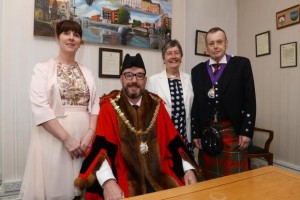
Mayoress/Consort: Historically defined as ‘the wife or other chosen consort of a Mayor’, a Mayoress is a totally unelected and unofficial post originally introduced in the 15th century as an official ‘hostess’ on behalf of the Mayor (then always a man). Today the role of Mayoress/Mayor’s Consort is ‘someone who can assist with Mayoral duties during his or her term of office’. Whilst this is often the partner of the Mayor there is no requirement that it should be anyone other than ‘someone who the Mayor wishes to be their consort for that year’. Sometimes the Mayoress can get invited to 1 or 2 ‘gender specific’ functions in their own right (eg: the Salvation Army Lady’s Day). The Mayoress also has a chain and badge denoting office.
Recommendation: Whilst an assistant for their year in office is recommended, the position of Mayoress or Consort should remain totally at the discretion of the Mayor but should not conform to stereotypically sexist roles.
Deputy Mayor: There are no defined duties specific to the Deputy Mayor. The role is primarily an apprenticeship for the subsequent year as Mayor. There is a convention that the person elected as Deputy Mayor will become the Mayor the following year. The Mayor may include the Deputy in some invitations in order to ‘learn on the job’. The Mayor may pass on some functions to the Deputy if he or she is not available.
However, this is at the discretion of the Mayor. There exists a small fund of £200 available to the Deputy which can be applied to in order to reimburse relevant expenses.
Recommendation: A Mayor makes the judgement whether to delegate an event to a Deputy based on the requirements stipulated in the received event proforma..
Deputy Mayor’s consort: There is no role of Deputy Mayoress but a ‘Consort’ is offered at the discretion of the Deputy Mayor and should be seen as an apprenticeship in preparation for the incoming year as Mayoress/Consort..
Recommendation: It should be formally acknowledged that if a Deputy Mayor is serving an apprenticeship year and wishes to appoint a Consort then this role should be official. A very basic indicative brooch or insignia would need to be created.
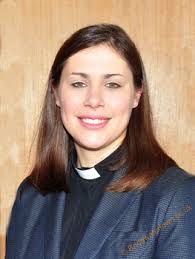
Chaplain: Mayor’s Chaplains were historically devised to be ‘spiritual advisers’ to the Mayor. There is a ‘tradition’ to nominate a chaplain. However, this is totally discretionary and up to the Mayor. There is no defined duty but the minimum expectation has been to attend the Mayor Making and the Civic Service. In Belfast the Mayor has 8 Chaplains to proportionally balance viewpoints including Protestant, Catholic, Baha’I, Jewish, Muslim and Buddhist. In Leicester the Mayor’s Chaplain is of no faith but is a Humanist. There is a belief that as the Church of England is the State religion and St Mary’s is the Parish Church, the Chaplain should automatically be the Parish Priest. This is reinforced by the fact the ‘Corporation Pews’ (installed 1620), including a highly decorated ‘Mayor’s seat’ are located in this church. In 2015 whilst the BSA (British Social Attitudes) survey showed 42% identifying as ‘Christians’ and 49% as ‘no religion’ 8% ‘other’ religions 1% not stated, the CofE’s own statistics show only 980,000 people attend a CofE service each week. It should also be noted that whilst the Government introduced same sex marriages in 2014 the Church of England remains in dispute over the issue.
When Mayor’s Chaplains were first devised in the Middle Ages they were essentially to enforce a singular state religion (CofE) but in a modern community the residents of the area will not all be of the same belief. Many religions will have a presence in the community and many in the community will have no allegiance to a faith of any kind. In this case it may be seen that a Chaplain is a particularly antiquated role. There may also be a concern that a Mayor would feel ‘obliged’ to take a Chaplain even if they have no faith themselves, which could of course lead to accusations of hypocrisy.
Recommendations:
(i)This Council should support the move by progressive Councils who choose to modernise the role of The Mayor’s Chaplain by stipulating that they must act as a focal point for ALL Faith groups in the area.
(ii)It should remain up to the Mayor to appoint a Chaplain but only should he or she wish, and must not be seen to be supporting any one religion over another and so a requirement of any Mayor’s Chaplain should be to explain the differences and similarities of belief and practice, including the Mayor attending a religious or other
service of other faiths as the outward show that he or/ she is the Mayor of all the people and of the right to worship freely.
(iii) The Mayor may also quite legitimately choose not to appoint a Chaplain or to adopt and promote a humanist perspective.
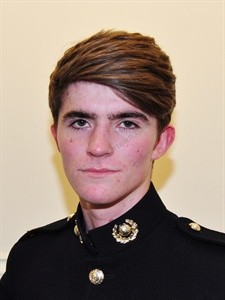
Mayor’s Cadet: Cadet organisations are designed to give military training to people of school age and are funded by the MOD. There was no historic role in Bridgwater for a ‘Mayors Cadet’ until introduced at the suggestion of former Mayor Monteith in 2005. Towns which have introduced a ‘Cadet’ often do it to emphasise connection and/or support for the armed forces and to promote the existence of Cadet organisations. The introduction of a Mayor’s Cadet was to provide recognition to the 3 service squadrons in town as not many towns actually have all 3 cadet forces. The role of the cadet is to carry a mace during the Mayor Making and at similar services-such as Remembrance and Civic Service as required at the behest of the Mayor. The Cadet is also invited to the opening of the Fair, essentially as a payback for the other duties.
Recommendation:The option of a Mayor’s Cadet should be offered to the Mayor. If the Mayor agrees to follow the tradition the offer will then be made in rota ARMY-SEA-AIR in January each year when the Town Clerk writes to the appropriate service for nomination. The Cadet is chosen by the service and not by Mayor.

Town Clerk: The role of the Town Clerk (Alan Hurford) in relation to the Mayor is solely as advisor. The Mayor’s Secretary assumes the bulk of the support role.
Mayor’s Secretary: Currently Judi Fisher (1.11.2009) The Mayor’s Secretary is a paid member of Town Council staff who manages the Mayor’s diary.
The diary-fixing process involves the office receiving an invitation for the Mayor to attend a function, her scanning the invite and sending it to the Mayor to make a decision.
The Mayor’s diary (on an excel spreadsheet) is constantly updated – and emailed to Mayor and Dep Mayor weekly for consultation and answers. The Mayor’s Secretary is also the PA to the Town Clerk.
Recommendations: Some Mayors have attempted to manage their own diaries which might have led to confusion and this should be avoided. The Mayor’s Secretary should continue to work closely and constantly with and at the behest of the Town Mayor so that they are consistently informed as to their programme and expected duties.
The Town Clerk’s Office should continue to assume the responsibilities for maintaining the accoutrements of the Mayor ensuring robes and artefacts are logged, cleaned and maintained to appropriate standard.
Honorary President: Some local organisations request that the Mayor be their ‘Honorary President’ during their term of officer. This is largely seen as a device to add at least the illusion of official patronage to the body in question.
Recommendations: There are no expectations to this role other than a titular approval for the organisation, however a Mayor may choose to attend meetings where possible, and at least the AGM, or to otherwise promote the organisation.
WHAT ARE THE DUTIES OF A MAYOR – ACTUAL & ASSUMED
Functions: There are on average between 130-250 a year and these are notified to the Mayor via the Mayor’s Secretary for acceptance, refusal or delegation to Deputy. Often they will simply require the Mayor’s attendance at an event
Speeches: On some occasions the Mayor will be asked to speak at an event. When an event is agreed a proforma is then sent out to be completed by the event organisers asking what is required of the Mayor, what they should wear and say. This therefore generally writes itself as a speech but the Mayor may add content as seen fit. If the Mayor has a problem with creating an appropriate speech the Town Clerk will assist.
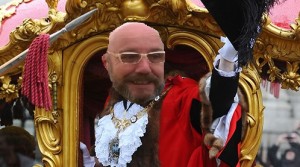
Mayor Making: When the new Mayor takes office this is the start of the Civic Year and throughout the ages has been used as an opportunity to promote and celebrate the town and to introduce the incoming Mayor whilst thanking the outgoing Mayor. Traditionally this has taken the form of a Mayor Making ceremony followed by a reception to which a combination of important people in the town and wider region are invited along with guests of the incoming Mayor. It should be regarded as the key networking event of the year
Venue: The ‘reception’ (traditionally called a ‘Banquet’-and at one time there was a ‘Mayors Banquet Committee’ but this gluttonous sounding term has now been dropped) has traditionally been held in the Town Hall theatre. However historically the Mayor Making ‘ceremony’ has been held elsewhere. During the Borough days this was in the ‘Bridgwater Room’ of the Town Hall. Since incorporation into Sedgemoor District in 1974 this tradition continued until 1991 when it started to be held in the Sedgemoor room at ‘Bridgwater House’, followed by a procession to the Town Hall. In 2009 this was attempted in the ‘Charter Hall’ but deemed too small so in 2011 this was changed to St Mary’s Church which was seen as a large enough building to permit free access to a large number of towns people with a grand enough setting and close enough to the Town Hall.
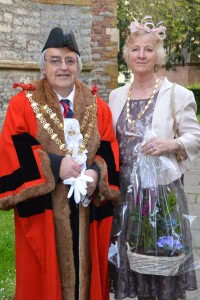
Recommendation: Whilst St Mary’s church is currently a favoured option due to its size it would be desirable long-term to seek to restore the ceremony to a renovated Bridgwater Room.
Numbers: There are officially no limits to numbers beyond capacity of the Town Hall and the budget available. It is suggested that 150 seated is reasonably comfortable. There is a civic list held by the Town Clerk which numbers c.130 with the remaining spaces at Mayor’s discretion, usually to friends and family
Order of meeting: The arrangements for the Mayor Making are submitted to the Town Council in March to formalise. This usually involves the outgoing Mayor being led into the venue by Macebearer and cadets bearing maces, a formal vote on election of new Mayor, and deputy Mayor. Announcements of Mayoress/Consorts, Chaplain, Cadets, Charities, and attendant speeches.
Recommendation: The arrangements for the Mayor Making should be discussed first between the Town Clerk and the Incoming Mayor. The Civic List needs to be annually updated for approval.
Budget: There is a separate £1,500 budget (2015-16) for the Mayor Making event which is held by the Town Clerk. Some Mayors have provided entertainment. Mayor Austen, a folk band, Mayor Loveridge, the ACTS singers, Mayor Redman, the County Council Choir.
Recommendation: The Mayor may spend above or below as he or she wishes but any spend above the figure must be made up from the Mayor’s Allowance (or privately) and any figure below must be returned to BTC budget. There is no set rule for what the Mayor should provide but minimum expectation has been ‘complimentary refreshments’
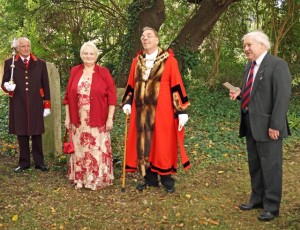
What are Civic occasions? The Mayor is responsible, in a non-political way, for furthering the interests of the Town where an appropriate occasion arises and in this capacity attends many different types of functions throughout the year such as formal dinners, official openings of events or new facilities, talking to clubs and societies and visiting schools. The Mayor also hosts visits to the Mayor’s Parlour from various organisations and may receive requests for such visits from the community. The Mayor also may act as host to visitors to the town, including royalty, national representatives of various organisations and foreign visitors, especially those from our twin towns. The Mayor can ask the Deputy Mayor to stand in if he or she is not available.
Recommendation: Many towns insist that their modern diary includes other civic events of note and Bridgwater should consider extending these to include for instance:
Armed Forces Day (end of June)
Holocaust Memorial Day (27 January since 2005)
Bridgwater Charter Day (26 June since 1200)
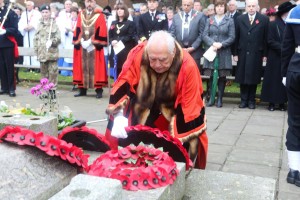
Remembrance Day: This has been a National commemoration since 1919 of the Nations armed forces that have died in the line of duty. There is no obligation for a Mayor to attend, particularly if the Mayor’s beliefs prevent them from doing so. However, all Mayors have always attended and it would be seen as a serious departure should this not be the case. .
Recommendation: An incoming mayor’s intentions in this respect should be declared at the time of consideration for appointment as it might be seen as a major departure from Council policy and tradition. This should similarly be the case with the optional wearing of a white poppy or other symbolic adornment.
The event at the Cenotaph is organised on the nearest Sunday to November 11th by the British Legion, who invite the Mayor to participate. The normal routine is for the Mayor to invite a civic party to assemble at the Town Hall on the day-sometimes the Parlour and a complimentary drink-usually port. Former Mayors are traditionally invited to be robed if they so wish. Normally, the group will process to the square following a procession led by the vicar of St Marys and a large crucifix. Any speech is done by the Vicar and by the Legion. The Mayor would be the first to lay a wreath and does this on behalf of the citizens of the town.
Consequent to the event at the Cenotaph a process continues to St Mary’s church where the Mayor is required to assist in the carrying of a floral cross and then to attend a service.
After the church service the Mayor is required to attend the ‘march past’ and take (but not return) the salute on the steps of the Town Hall.
Civic Service or Event: Civic ceremonies have traditionally commemorated key events in the civic history of a Town and represent the coming together of the civic institutions such as the Council, the police, the legal profession with the churches. Some of these ceremonies have been celebrated for hundreds of years and offer the opportunity for visitors and citizens to see local dignitaries in their traditional dress. Some towns and cities have several civic services and share these amongst the different religious communities. In Bridgwater the tradition has been that the Mayor’s Chaplain helps to organise this event and officiates and usually provides their Church for the event.
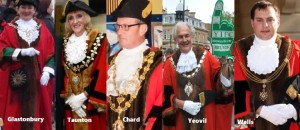
Recommendation: It is recommended that such a promotional event is worthy of continuing as a celebration of the town but need not be religious in nature.
Chain Gang: During the Mayor’s term of office they will often mix with Mayors of other towns and be invited to attend their Mayor Making events and civic services. Other Somerset towns with Mayors include Yeovil, Axbridge, Weston-Super-Mare, Taunton Deane, North Petherton, Burnham, Wells, Glastonbury and Minehead. Bridgwater is recognised as the oldest Mayoralty in Somerset.
Recommendation: Mayors are urged to attend these events as opportunities to promote our town.
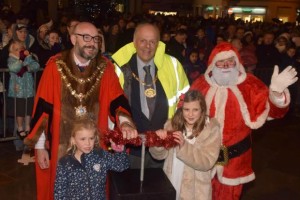
Bridgwater Fair: The Mayor and party are invited by the Showman’s Guild to process along West Street on the opening day of the Fair and to try out the rides. Often this is done in tandem with the Chair of Sedgemoor. SDC holds a competition for ‘best stall’ and sometimes the Mayor is invited to judge this
Carnival:The Mayor plays no official role in the Carnival but as the Parlour (via the Burgess room) is in prime position along the route, it has been customary to invite guests (usually family) to attend a reception during the procession. The Mayor is also sometimes invited to take part in the squibbing.
Fireworks: On the Friday before the Carnival there is a recent tradition of fireworks on St Matthews Field. The Mayor is invited to attend and take part in this BTC sponsored event
Christmas Lights: The recent introduction of ‘Snowflakes and Shopping’ event in November now incorporates the turning on of the Christmas lights. The Mayor usually officiates at this event which is organised by the Town Team.
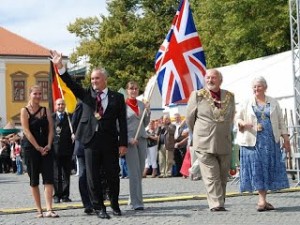
Foreign Visits: The Mayor is often invited to travel to one of the twin towns. Bridgwater currently has 5:
La Ciotat (France) Homberg (Germany) Uherske Hradiste (Czech Rep) Marsa (Malta) Priverno (Italy).
There is no obligation to do this although it can be seen as good promotion for the town. There is no budget beyond the Mayor’s Allowance or private funding. Gifts can be provided by the Town Council. Often this lack of hosting budget can prove embarrassing as Foreign Municipalities invariably have a dedicated ‘Twinning’ budget whilst in UK there is often concern that such trips can be seen as junketing. Similarly visits to Bridgwater BY twinned partners has no attendant budget to facilitate and is down to the Twinning groups themselves which currently receive £300 per year to fulfil all their varied programmes.
Recommendation: Whilst Mayors are encouraged to visit at least one Twin Town during their year of office, no additional budget be provided for this.
Mayor’s chosen charity: Each year it has been tradition for the Mayor to nominate a chosen charity. This is totally up to the Mayor. During the course of the year the Mayor can raise money for this in any way deemed fit. Some Mayors have arranged special events – Mayor Monteith reformed his soul band, Mayor Parker had a Beatles themed medieval banquet, Mayor Austen a murder mystery. Often collection boxes have simply been present at events and in the parlour.
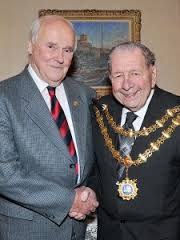
Mayors Parlour: Some Lord Mayors have an official residence – often a Mansion House, where guests can be hosted. However, in Bridgwater and smaller towns there exists a Parlour for similar functions. It falls within the Mayor’s allowance to stock this for entertainment purposes and use at their own discretion. The Mayor has the option within their allowance to receive groups or individuals as deemed fit at the Parlour. Often this has been visiting groups from partnership countries, or receptions after shows that the Mayor has supported.
Tickets: It has been a tradition that the Mayor attends events in order to show the towns support. This often takes the form of being sent a couple of free tickets to a show and then the Mayor in turn buying several more tickets and inviting guests.
Post Council Parlour:There has been an ‘expectation’ that upon conclusion of Town Council meetings, members and partners are invited back to the parlour for a drink and a buffet. The event is seen as a way to give something back to unpaid councillors but also to allow members to discuss business in an informal setting.
Recommendation:There is no compulsion to hold this event and a Mayor may or may not choose to include this on their programme of receptions. Any budget has to come from the Mayors allowance.
Xmas drinks for the workers: This is a recent tradition devised by the Town Clerk to thank council staff at xmas time.
Recommendation: There is an expectation that a Mayor should support this worthwhile function but any budget to come from the Mayor’s allowance.
Mayor’s community awards: Many Towns have special awards determined and presented by the Mayor to highlight and reward the works for the community of recognised individuals. In Bridgwater this amounts to the Bridgwater Cup and the Mayor’s Xmas window award
Bridgwater Cup: This was first presented to Bridgwater Town Council in 1986 by businessman Colin Wilkins. Each year nominations are sought from the community and the members of the council, by majority vote, choose a winner. The Mayor presents it at a function often in parlour. However, Mayor Redman presented it at his Civic Service, and Mayor Loveridge on stage at a performance by the winner.
Mayors Xmas window award: There is a tradition that the Mayor chooses a particularly well decorated shop window at Christmas time and name it as ‘best dressed’.
Recommendation: This tradition should continue and attendant publicity should be devised along with this to encourage other shops to make more of an effort.
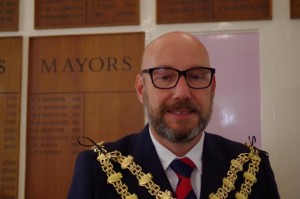
Mayors Oath of Fealty: An Oath of Fealty (faithfulness) is a pledge of allegiance to those above and below and a key part of the feudal system so that people knew and accepted their place. The 1787 Oath was revised by Mayor Smeed in 2007 and is read out at the annual Mayor Making. Mayor Parker chose to interpret it in a question and answer format delivered by his Chaplain in 2011.
Mayors Oath 1787 ;- You shall well and truly execute the Office of Mayor and Mayorality within the Borough and Parish of Bridgwater and the Precincts and Liberties and Franchises thereof in all things touching your said office And shall see and cause the Peace to be kept within the said Borough and Parish as much as in you lyeth And shall conserve and keep the Statutes of Labourers & Artificers And also keep and cause to be kept amended and corrected (as need shall require) the Weights and Measures within the S. Borough Liberties and Precincts thereof And shall repress and punish Riots & Routs to the best of your power And do the best you may for the keeping and observing of such Priviledges[1] Liberties and Franchises as are granted to the Mayor Aldermen & Burgesses of this Borough And shall do your best endeavour for the good rule and government of this Town and the People thereof And shall do indifferent Justice to all men as well as to poor as rich and be partial with or against no Party, but shall do all things according to the Laws of this Realm & the Liberties of this Town as much as in your Power lieth And shall well and truly behave yourself in all things that belongeth to your said Office to the best of your Power. So help you God.
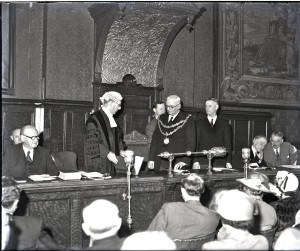
Mayor’s Oath 2007 onwards I do solemnly affirm that I ………..(name) shall Well and truly execute the Office of Mayor and Mayorality within the Town of Bridgwater in all things touching my said office. I shall see and cause the Peace to be kept within the said Town as much as in me lyeth And shall repress and punish anti-social behaviour to the best of my power And do the best I may for the keeping and observing of such Privileges Liberties and Franchises as are granted to the Town Council And shall do my best endeavour for the good rule and government of this Town and the People thereof And shall do indifferent Justice to all men as well as to poor as rich and be partial with or against no Party, but shall do all things according to the Laws of this Realm & the Liberties of this Town as much as in my Power lieth And shall well and truly behave myself in all things that belongeth to my said Office to the best of my Power. [So help me God].
To read about the history of the Bridgwater Mayoralty click here.
